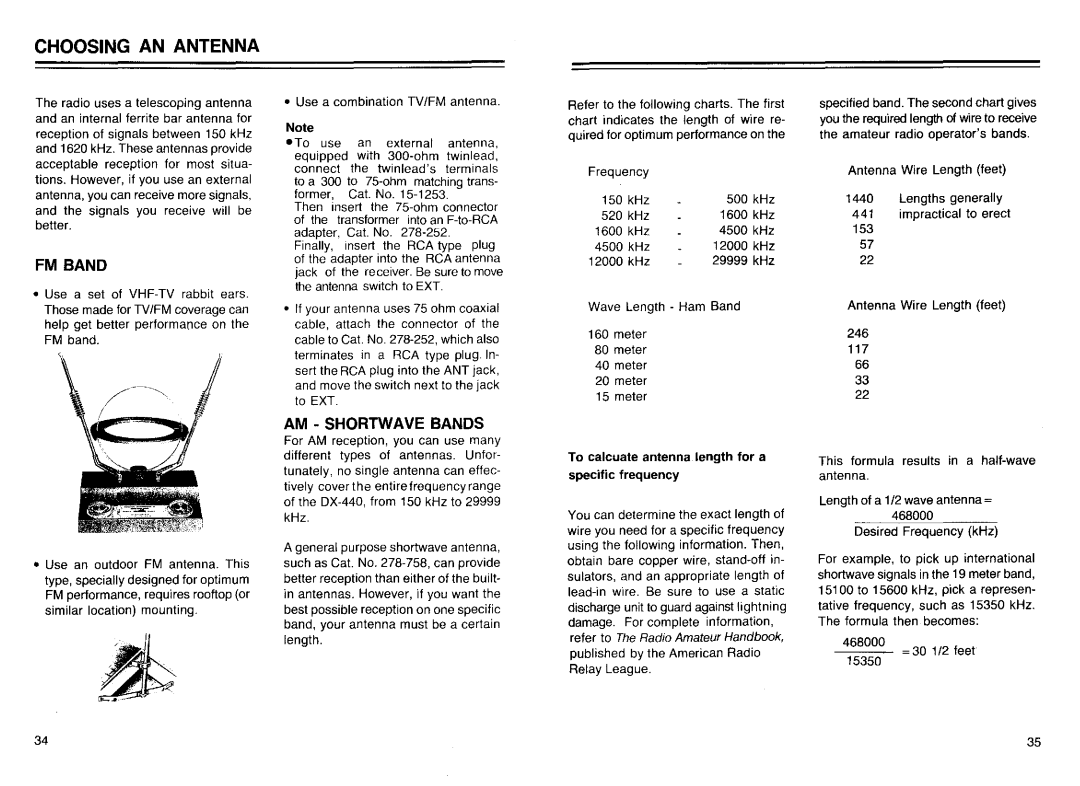
CHOOSING AN ANTENNA
The radio uses a telescoping antenna and an internal ferrite bar antenna for reception of signals between 150 kHz and 1620 kHz. These antennas provide acceptable reception for most situa- tions. However, if you use an external antenna, you can receive more signals, and the signals you receive will be better.
FM BAND
•Use a set of
•Use an outdoor FM antenna. This type, specially designed for optimum FM performance, requires rooftop (or similar location) mounting.
~.}> . n,,-
......-
• Use a combination TV/FM antenna.
Note
eTo use an external antenna, equipped with
Then insert the
Finally, insert the RCA type plug of the adapter into the RCA antenna jack of the receiver. Be sure to move the antenna switch to EXT.
•If your antenna uses 75 ohm coaxial cable, attach the connector of the cable to Cat. No.
AM - SHORTWAVE BANDS
For AM reception, you can use many different types of antennas. Unfor- tunately, no single antenna can effec- tively cover the entire frequency range of the
A general purpose shortwave antenna, such as Cat. No.
Refer to the following charts. The first chart indicates the length of wire re- quired for optimum performance on the
Frequency |
|
|
150 kHz | 500 | kHz |
520 kHz | 1600 kHz | |
1600 kHz | 4500 | kHz |
4500 kHz | 12000 kHz | |
12000 kHz | 29999 | kHz |
Wave Length - Ham Band
160meter
80meter
40meter
20meter
15meter
To calcuate antenna length for a specific frequency
You can determine the exact length of wire you need for a specific frequency using the following information. Then, obtain bare copper wire,
specified band. The second chart gives you the required length of wire to receive the amateur radio operator'sbands.
Antenna Wire Length (feet)
1440 Lengths generally
441impractical to erect
57
22
Antenna Wire Length (feet)
246
117
66
33
22
This formula results in a
Length of a 1/2 wave antenna = 468000
Desired Frequency (kHz)
For example, to pick up international shortwave signals in the 19 meter band, 15100 to 15600 kHz, pick a represen- tative frequency, such as 15350 kHz. The formula then becomes:
468000 | = 30 1/2 feet | |
15350 | ||
|
34 | 35 |
